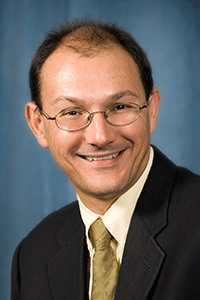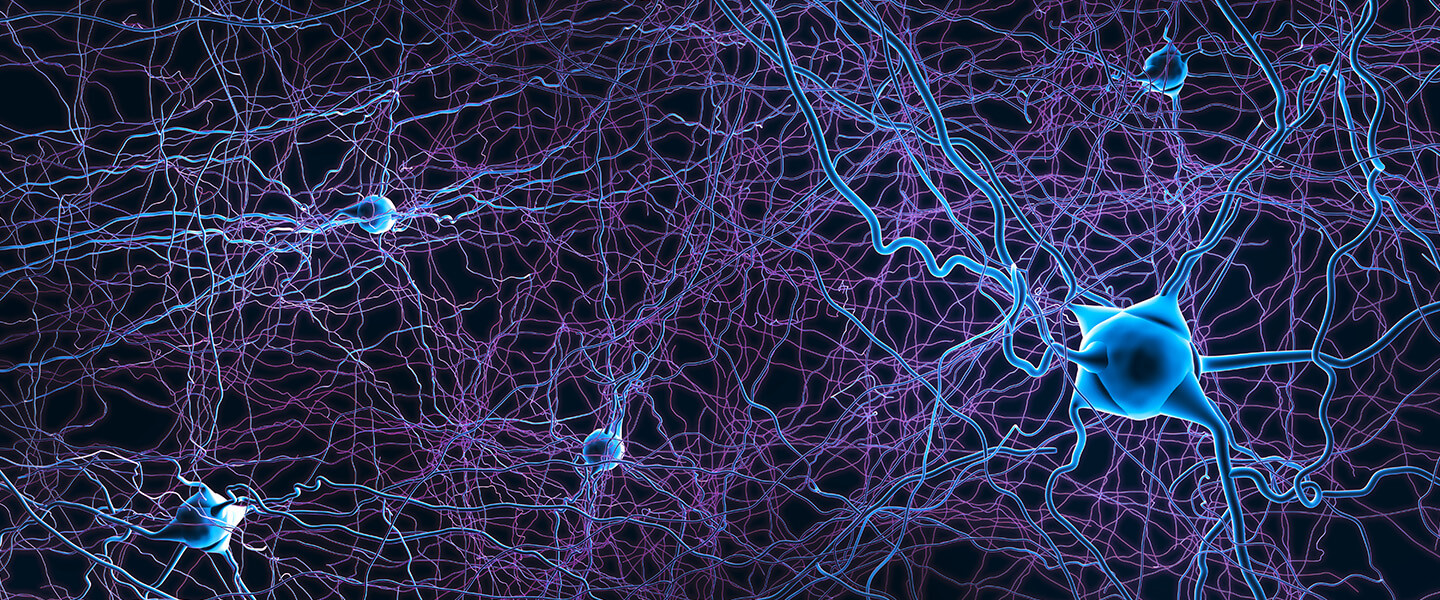2023 Leading Research Achievements
We are pleased to present you with the 2023 Leading Research Achievements by BBRF Grantees, Prize Winners & Scientific Council Members. They are presented in the order of their publication in scientific journals.
Talk Therapy + Brain Stimulation Reduced Suicidal Ideation in Patients with Borderline Personality Disorder and Treatment-Resistant Depression, Pilot Trial Shows
Next-Generation Therapies: Borderline Personality Disorder, Suicidality


- Anthony C. Ruocco, Ph.D., C.Psych., University of Toronto; 2014 BBRF Young Investigator
- Jenna M. Traynor, Ph.D., McLean Hospital / Harvard University; 2022 BBRF Young Investigator
In a clinical trial, individuals with borderline personality disorder (BPD) and co-occurring major depression and suicidal ideation, when treated with dialectical behavior therapy (DBT) and concurrent magnetic seizure therapy (MST), experienced a rapid, clinically meaningful reduction in suicidal ideation at 5 weeks that was sustained at 4-month follow-up. Read more.
Nature Mental Health, January 19, 2023
Four Subtypes of Autism Spectrum Disorder Are Distinguished, Helping to Explain Individual Differences in Symptoms
Diagnostic Tools-Early Intervention: Autism Spectrum Disorders

- Conor Liston, M.D., Ph.D., National Institute of Mental Health, Duke University; Weill Cornell Medicine; 2013 BBRF Young Investigator
Researchers used a large set of neuroimaging data to identify distinct sets of alterations in functional connectivity that may help explain differences among people with autism spectrum disorders (ASD). A cohort of 299 individuals with ASD “clustered” into four subgroups, each with distinct patterns of atypical functional connectivity in ASD-related neural networks affecting verbal ability, social affect, and repetitive behaviors and restricted interests. The findings promise to advance the search for new treatments. Read more.
Nature Neuroscience, March 9, 2023
Functional Connectivity Brain Changes Involving Linkages Between Cognition and Motor Function Are Discerned in OCD Patients
Basic Research: OCD



- Odile A. van den Heuvel, M.D., Ph.D., Amsterdam University Medical Center, Netherlands; 2009 BBRF Young Investigator
- Paul M. Thompson, Ph.D., University of Southern California; 2017 BBRF Distinguished Investigator
- Dan J. Stein, Ph.D., FRCPC, University of Cape Town, South Africa; 1991 BBRF Young Investigator
A large international team the team investigated brain-wide functional connectivity differences using MRI data of 1,024 OCD patients and 1,028 healthy controls. They found widespread functional connectivity aberrations in people with OCD, notably in the sensorimotor network. These could reflect impairments in suppressing irrelevant sensory, cognitive, and motor information, which may contribute to the inability of patients to inhibit undesired thoughts and images and repetitive behaviors and thoughts. Read more.
Molecular Psychiatry, May 2, 2023
In Young Men, 15% of Schizophrenia Might Be Prevented If Cannabis Use Disorder Is Not Present, Study Finds
Basic Research, Diagnostic Tools/Early Intervention: Substance Use Disorder, Schizophrenia

- Nora Volkow, M.D., Director, National Institute on Drug Abuse/NIH; BBRF Scientific Council
Using Danish national health records of 6.9 million individuals born in the country over 5 decades, investigators found that cannabis use disorder (CUD) is contributing to a “steadily increasing proportion” of schizophrenia cases—a figure, in young men, they “conservatively” estimate at 15% for 2021. Such cases might have been preventable if CUD had not been present, they said. In young males, aged 21-30, and possibly up to age 40, the proportion of schizophrenia cases that may now be avoided if CUD is not present “may even be as high as 25% to 30%,” they added. For this reason, the team considers CUD to be “a major modifiable risk factor for schizophrenia, particularly among males.” Read more.
Psychological Medicine, May 4, 2023
Brain Changes Related to Adolescent Cannabis Use Are Found to Persist Into Young Adulthood
Basic Research, Diagnostic Tools/Early Intervention: Substance Use Disorder, Schizophrenia

- Matthew D. Albaugh, Ph.D., University of Vermont; 2020 BBRF Young Investigator
Brain changes related to adolescent initiation of cannabis were found in this follow-up study to have persisted into young adulthood. This was true especially in brain areas rich in type 1 cannabinoid receptors—the same areas that undergo the greatest age-related cortical thickness changes during adolescence. The team identified potential indirect effects on psychotic symptoms at age 22 associated with thickness changes in temporal areas of the brain. The research provides a foundation for neurodevelopmentally informed models of cannabis exposure. Read more.
Molecular Psychiatry, June 28, 2023
Gliosis, an Immune Response to Brain Injury, Is Found in Brains of Recovered COVID Patients With Lasting Depression and Cognitive Symptoms
Basic Research: Long COVID

- Jeffrey H. Meyer, M.D., Ph.D., University of Toronto; 2015 BBRF Distinguished Investigator; 2000 and 1998 Young Investigator
Researchers studying recovered COVID patients with lingering depression and cognitive symptoms (COVID-DC) found evidence of gliosis, an immune response to brain injury. Most affected were two brain regions: the ventral striatum and dorsal putamen. Higher readings in the latter area also were found to correlate with motor slowing. This result suggests it may be worthwhile to test several drugs now in development to reduce gliosis in COVID-DC (i.e., “long COVID”) patients. Read more.
JAMA Psychiatry, May 31, 2023
In PTSD, Evidence That a Single Ketamine Infusion May Enhance Extinction of Recalled Traumatic Memories
Next-Generation Therapies: PTSD

- Ilan Harpaz-Rotem, Ph.D., Yale University; 2015 BBRF Independent Investigator
What if traumatic memories could be rewritten—overwritten and replaced with other memories, or modified so that the memory-induced fear response to the original trauma is extinguished? A pilot study generated evidence that a single ketamine infusion may have enhanced extinction of traumatic memories, following their initial retrieval, in PTSD patients. Ketamine combined with talk therapy is a potential novel future intervention for PTSD and anxiety disorders, the researchers concluded. Read more.
Neuropsychopharmacology, June 3, 2023
Rapid-Acting Pill to Treat Postpartum Depression is Approved
Next-Generation Therapies: Depression

- Marlene Freeman, M.D., Massachusetts General Hospital/Harvard Medical School; 2000, 1998 BBRF Young Investigator
The FDA on August 4th approved the first short-course, rapid-acting oral treatment for patients with postpartum depression (PPD). Called zuranolone (marketed as Zurzuvae), it is given in pill form for 14 days and begins to reduce severe PPD symptoms in as little as 3 days. Because of its accessibility, zuranolone is an important advance. The first-ever rapid-acting medicine for postpartum depression, brexanolone, on the market since 2019, is administered via continuous infusion in a medical facility. A number of past BBRF grantees performed research laying the groundwork for these new rapid-acting PPD therapies, among them three-time grantee Cynthia Neill Epperson, M.D., who mapped changes in cortical levels of the inhibitory neurotransmitter GABA across the menstrual cycle and in postpartum women. The new therapies act upon one of the cellular receptors for GABA. Read more.
American Journal of Psychiatry, July 28, 2023
A Connectivity Signature Predicting Response to Antipsychotic Therapy is Identified in First-Episode Psychosis Patients
Next-Generation Therapies: Depression


- Anil K. Malhotra, M.D., Feinstein Institutes for Medical Research/Zucker Hillside Hospital; BBRF Scientific Council; 2006, 2001 BBRF Independent Investigator; 1999 Young Investigator
- Hengyi Cao, Ph.D., Feinstein Institutes for Medical Research; 2018 BBRF Young Investigator
Researchers reported encouraging news in the search for biomarkers to predict treatment response to antipsychotics in individuals with first-episode psychosis. The predictors the team found using functional brain imaging involved connectivity between the cerebellum and the cerebral cortex, where lower connectivity at baseline predicted better response to antipsychotics. Cerebellar-cortical hyper-connectivity in psychosis may result from dysregulation of dopamine in cortical cognitive systems, the team said. Predictors for individualized response to antipsychotic treatment can help find the best treatment more rapidly, and thus increase the likelihood of better long-term outcomes for first-episode patients. Read more.
American Journal of Psychiatry, August 30, 2023
Anti-Inflammatory Medicine Reduced Positive Symptom Severity in Chronic Schizophrenia Patients with Elevated Inflammatory Markers
Next-Generation Therapies: Schizophrenia


- Thomas W. Weickert, Ph.D., 2016 BBRF Independent Investigator
- Cynthia Shannon Weickert, Ph.D., 2004 BBRF Independent Investigator; 2001, 1999 Young Investigator
SUNY Upstate Medical University; University of New South Wales; Neuroscience Research Australia
A small clinical trial tested the approved anti-inflammatory drug canakinumab in a group of chronic schizophrenia patients with elevated blood markers of inflammation. The team found that a single injection of the drug (150mg) “was effective in reducing a peripheral marker of inflammation [C-reactive protein, CRP].” Levels of CRP declined continuously for the first 4 weeks post-injection and were significantly reduced at all times through 8 weeks relative to baseline levels. This was accompanied by a measurable reduction considered significant in the severity of positive symptoms—hallucinations, delusions, and odd or intrusive thoughts. Read more.
Brain, Behavior and Immunity, October 15, 2023
Precisely Targeting and Predicting the Impact of TMS Brain Stimulation for Depression with Combined TMS/fMRI
Next-Generation Therapies: Depression

- Desmond J. Oathes, Ph.D., University of Pennsylvania; 2016 Young Investigator
Using a combination of preliminary TMS pulses and simultaneous functional MRI scanning, researchers identified a predictor of response to non-invasive rTMS brain stimulation therapy in depression. The more a preliminary TMS pulse showed that activity in a deep-brain structure called the subgenual anterior cingulate cortex (sgACC) was reduced, the greater the response to 3 days of rTMS therapy. Potential implications include precisely targeting treatments to relieve specific psychiatric symptoms; and the ability to predict patient response before TMS therapy begins. Read more.
Nature Mental Health, November 27, 2023



